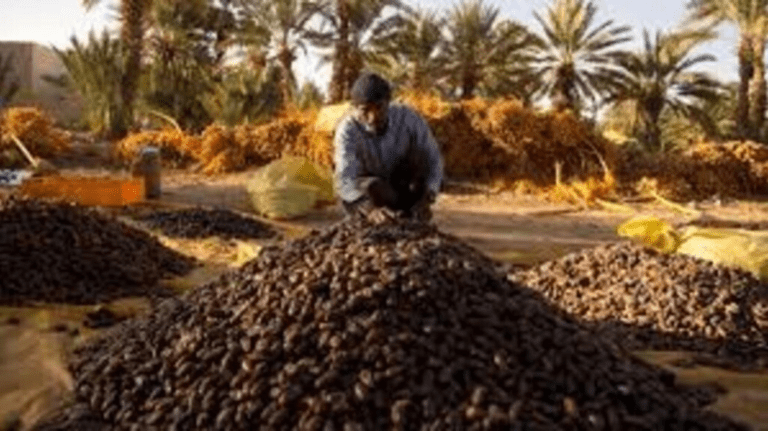The majhoul, imported from Morocco and a variety of dates known for its tender and sweet flesh, is now flourishing in the fertile lands of Misrata, Libya.
The mjhoul has shown remarkable adaptation in Libya, in a Mediterranean climate where few people expected to see this variety native to the semi-desert areas of Morocco flourish.
The majhoul, recognizable by its thin and wrinkled skin, can weigh up to 50 grams and sells for around 80 dinars per kilo (15.7 euros), well above local varieties.
Ismail Ben Saoud, a 51-year-old farmer, told AFP that he decided to take up the challenge in 2016 by planting 700 date palms on five hectares.
Eight years later, the first fruits are bearing their promise. “It was said that this date palm could not survive in the north, especially near the sea,” the farmer said.
Thanks to successive trials and the exclusive use of organic fertilizers, the harvest has now reached “very satisfactory” levels.
Local demand is high, but Mr. Ben Saoud is aiming for export to strengthen an agricultural sector in full renaissance.
Libya, a country largely dependent on hydrocarbons, is increasingly relying on its agricultural production to diversify its economy.
With 10 million palm trees, it exported over 50,000 tons of dates in 2023, according to the Ministry of Agriculture.
For agricultural expert, Salah Shagan, this renewed interest in agriculture, particularly around the date palm, reflects “a return to the land” and crucial economic opportunities in an economic context weakened since the fall of Muammar Gaddafi in 2011.
A cultural and religious symbol in the Arab world, the date is also a strategic product for Libya’s agricultural future.
In Misrata, the success of the majhoul is evidence of an innovation capable of making foreign crops thrive in an unexpected environment.
“The next step will be export,” concludes Ismail Ben Saoud, proud to have proven that a Moroccan variety could take root and flourish on the Libyan coast.
SL/te/Sf/fss/gik/APA


